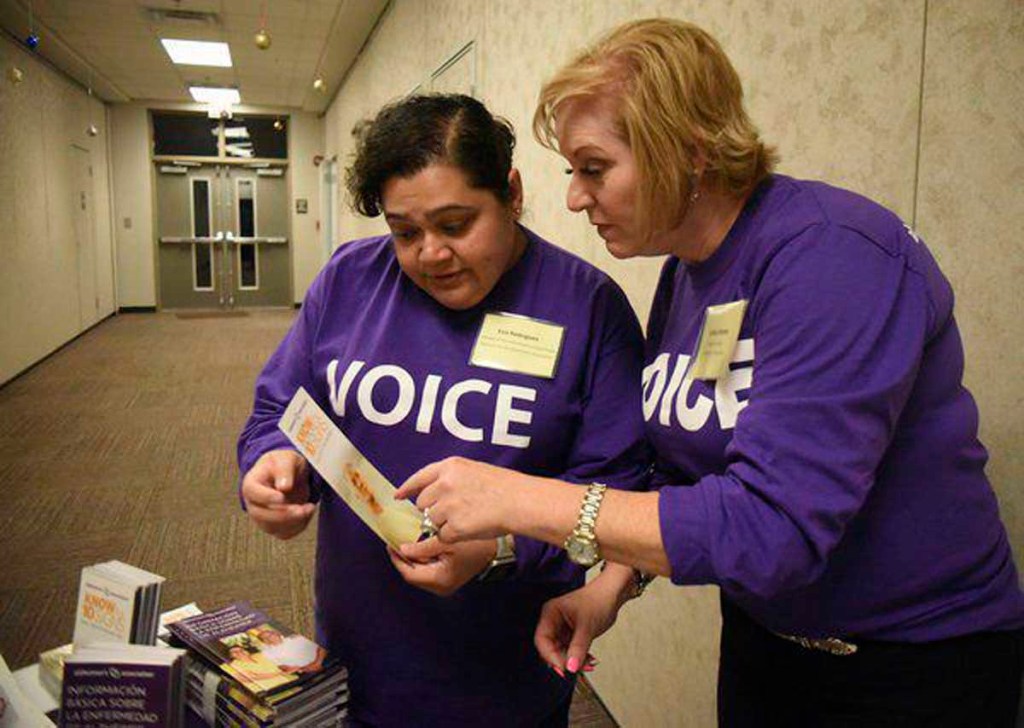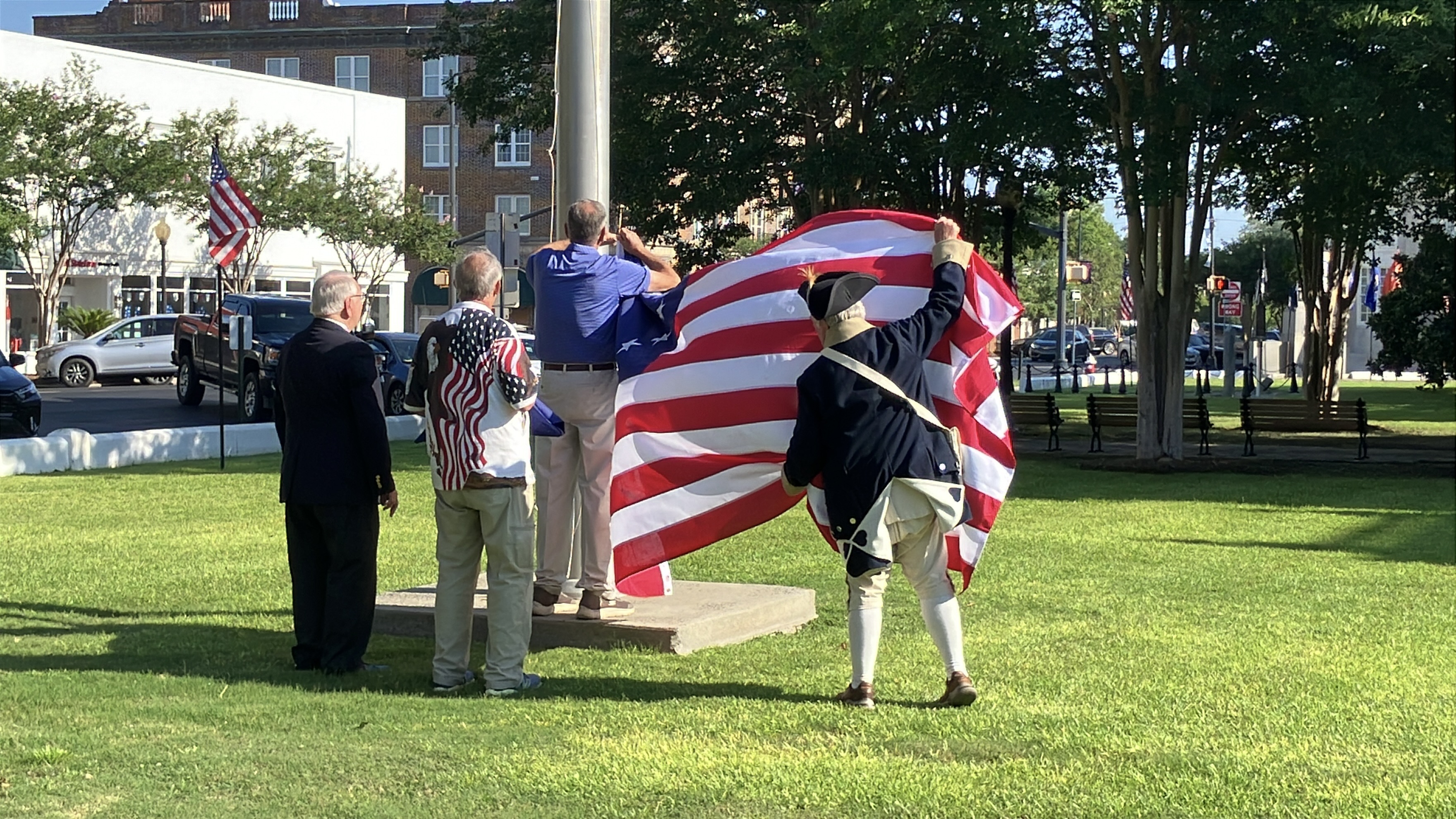Latinos discuss Alzheimer’s during Spanish-language forum
Published 8:00 am Thursday, December 19, 2019

- Matt Hamilton/Daily Citizen-NewsEva Rodriguez, left, the program manager for the Latin American Association, talks with LaRay Ramey, program director for the North Georgia chapter of the Alzheimer's Association, this past Thursday at the Mack Gaston Community Center.
DALTON, Ga. — Members of Dalton’s Latino community learned more about Alzheimer’s, including warning signs and resources, all in their native language during a community forum last week at the Mack Gaston Community Center.
“This (forum) is the first of its kind in Georgia,” said LaRay Ramey, program director for the Alzheimer’s Association’s North Georgia Service Area. Ramey worked closely with the Latin American Association in Dalton to coordinate the event, and, through their partnership, she’d already “discovered there is a need for home health agencies, hospice agencies and home care agencies to help with the care of this population.”
If those organizations don’t have bilingual personnel on staff, members of the Latino community can fall through the cracks, but this past Thursday, each table boasted a bilingual facilitator, Ramey said.
“We want people to get the information they need,” she said.
Ramey developed a work committee with several Latino community leaders, including Estela Ramirez, Veronica Raymundo and Eva Rodriguez (who all assisted with Thursday’s symposium), and they launched a support group for Latino Alzheimer’s caregivers and families this spring. Ramirez also leads Alzheimer’s education workshops regularly.
Alzheimer’s is a progressive neurological disorder characterized by symptoms including memory loss, judgment impairment, disorientation, personality change and loss of language skills. Currently, there is no cure.
Several attendees wanted to learn more to pass critical information onto others, such as Juan Ferreira, who works for a Spanish-language newspaper, where part of his duties include providing media services, he said.
“I want to know more about the Alzheimer’s Association and how it can help the Latino community,” he said.
Marcela Navarro works for North Georgia Community Hospice. She wants people, particularly in the Hispanic community — including those with Alzheimer’s and their caregivers — to know what hospice offers, she said.
“Hospice doesn’t mean you’re going to die, but, (rather), about improving quality of life,” Navarro said.
“I feel really strongly about educating the Hispanic community,” Navarro added. “This is especially important in the Hispanic culture, where family members take care” of those battling illness.
Melissa Magana and Gabby Rosillo, both from Cross Plains Community Partner, are hoping to act as resources for those they meet through their work.
“We’re in the human services field,” Magana said. Clients “might not have the information we do, and we can help them.”
Due to language barriers, members of the Latino community “aren’t always aware of what’s out there,” Rosillo said. “Part of our mission is helping everyone in our community live their best life.”
The Latin American Association has been — and continues to be — a valuable partner in the education effort, and Alzheimer’s can be “a taboo topic” in that culture, said Rodriguez, program manager for the LAA in Dalton. Because caring for family members is such a critical part of Hispanic life, even considering the notion a family member may have Alzheimer’s or dementia can be a significant hurdle, but “we want families to know there are resources in your language.”
For example, the aforementioned Alzheimer’s support group is the only one of its type in the state, Rodriguez said. She’s already heard from several members of the Hispanic community that “they are thankful for a safe place to come and share their experiences” with Alzheimer’s.
Indeed, this disease impacts not only the stricken, but also the family members of the afflicted, said Dr. Juan Gonzalez, a neurologist for Hamilton Health Care System.
“It puts (pressure and stress) on the person with the disease and everyone around them,” he said.
Latinos continue to be “severely under-represented in health clinics, so increasing awareness of chronic diseases, like Alzheimer’s, is really important,” said Gonzalez, who was one of Thursday’s presenters. “Understanding it allows for more safety and dignity for the patient.”
Information about Alzheimer’s can be “really eye-opening for the younger generation, (those) in their 20s and 30s,” Rodriguez said. “This is something that can happen to you or one of your family members.”
By 2060, the number of Latinos 65 and older is expected to nearly quadruple, and Latinos will face the largest increase in Alzheimer’s disease and related dementias cases of any racial/ethnic group in the United States, according to the Centers for Disease Control and Prevention. Latinos also tend to develop symptoms at a younger age than non-Latino whites.
Resources for care of Alzheimer’s patients “is lacking everywhere, but we’d like Dalton to be a beacon of change,” Gonzalez said. “We want to be a resourceful community.”





